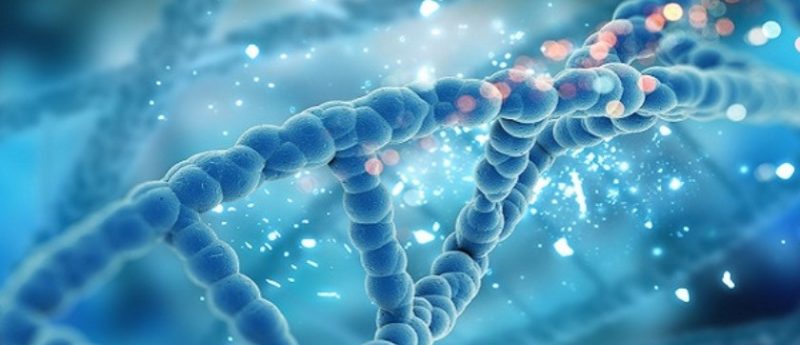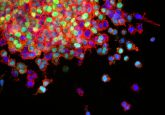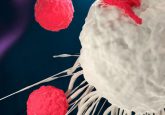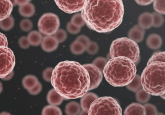Scientists uncover DNA ‘shield’ with crucial roles in cancer and normal cell division

A study, recently published in Nature, has made a major discovery about how cells repair broken strands of DNA that could have huge implications for the treatment of cancer.
The researchers uncovered the newly named ‘Shieldin’ complex, which shields broken DNA ends and controls the way in which it is repaired.
This complex pushes cancer cells to use a particular type of DNA repair system that is vulnerable to targeting by PARP inhibitors or platinum-based chemotherapies.
The findings could lead to tests to direct and monitor treatment for patients with mutations in BRCA1, BRCA2 or other DNA repair genes, treated with platinum-based chemotherapies or PARP inhibitors. Both of these therapeutic modalities take advantage of a weakness in the ability of cancer cells to repair their DNA.
When intact, the newly discovered Shieldin complex was found to contribute to this vulnerability by attaching to the broken DNA, forcing cancer cells to attempt to repair their DNA in a way that makes them susceptible to PARP inhibitors and platinum chemotherapies.
However, when mutations were introduced in the components of the complex, the researchers found that cancer cells grown in the lab and in mice used an alternative way to repair DNA and quickly became resistant to PARP inhibitors.
In order to shed more light on the Shieldin complex, the investigators analyzed breast cancer cells and mice that had mutations in the gene BRCA1 using Crispr/Cas9 genetic manipulation technology. This allowed them to identify gene mutations that caused cells to become resistant to the PARP inhibitor drugs olaparib and talazoparib, as well as the platinum chemotherapy cisplatin.
The researchers identified key gene mutations that led to drug resistance, which proteins these had an effect on, and worked out what these proteins did in cells. Additionally, they found that the complex is composed of newly identified proteins – termed SHLD1, SHLD2, and SHLD3.
“Our study reveals for the first time a complex that is crucial for DNA repair. Mutated versions of the complex could allow cancer cells to become resistant to exciting new PARP inhibitor drugs as well as some types of chemotherapy,” explained study author Chris Lord from The Institute of Cancer Research (London, UK).
“We next need to show that these mutations actually occur in patients and are clinically important. If that’s the case, we should be able to test for these mutations as a way of monitoring treatment and spotting early signs of resistance,” Lord concluded.
Sources: Noordermeer SM, Adam S, Setiaputra D et al. The shieldin complex mediates 53BP1-dependent DNA repair Nature (2018); www.icr.ac.uk/news-archive/scientists-uncover-dna-shield-with-crucial-roles-in-normal-cell-division-the-immune-system-and-cancer



